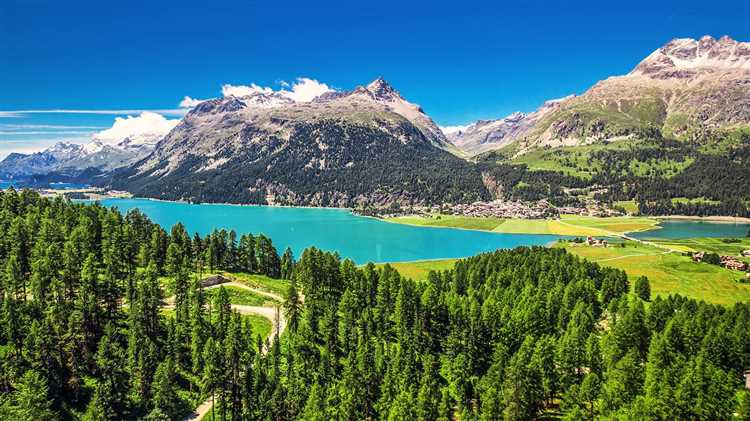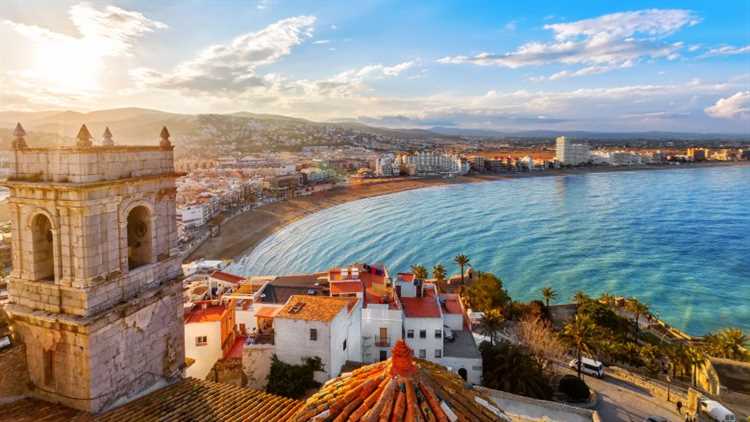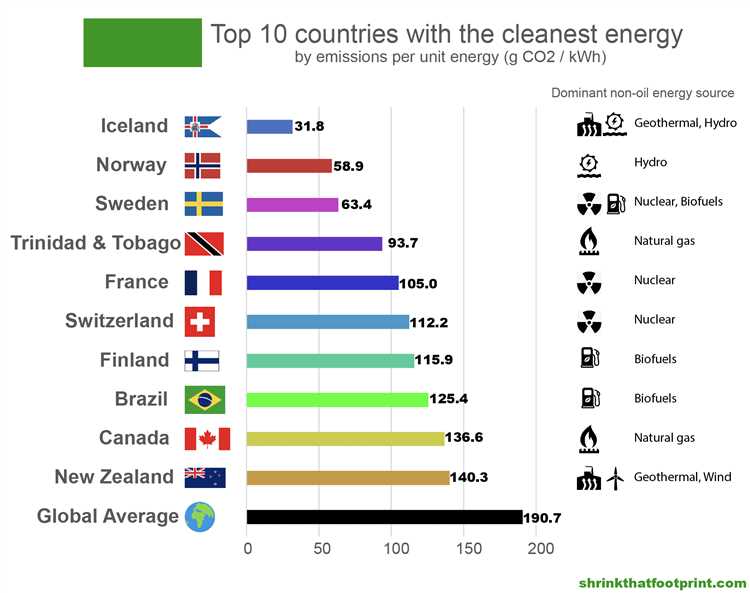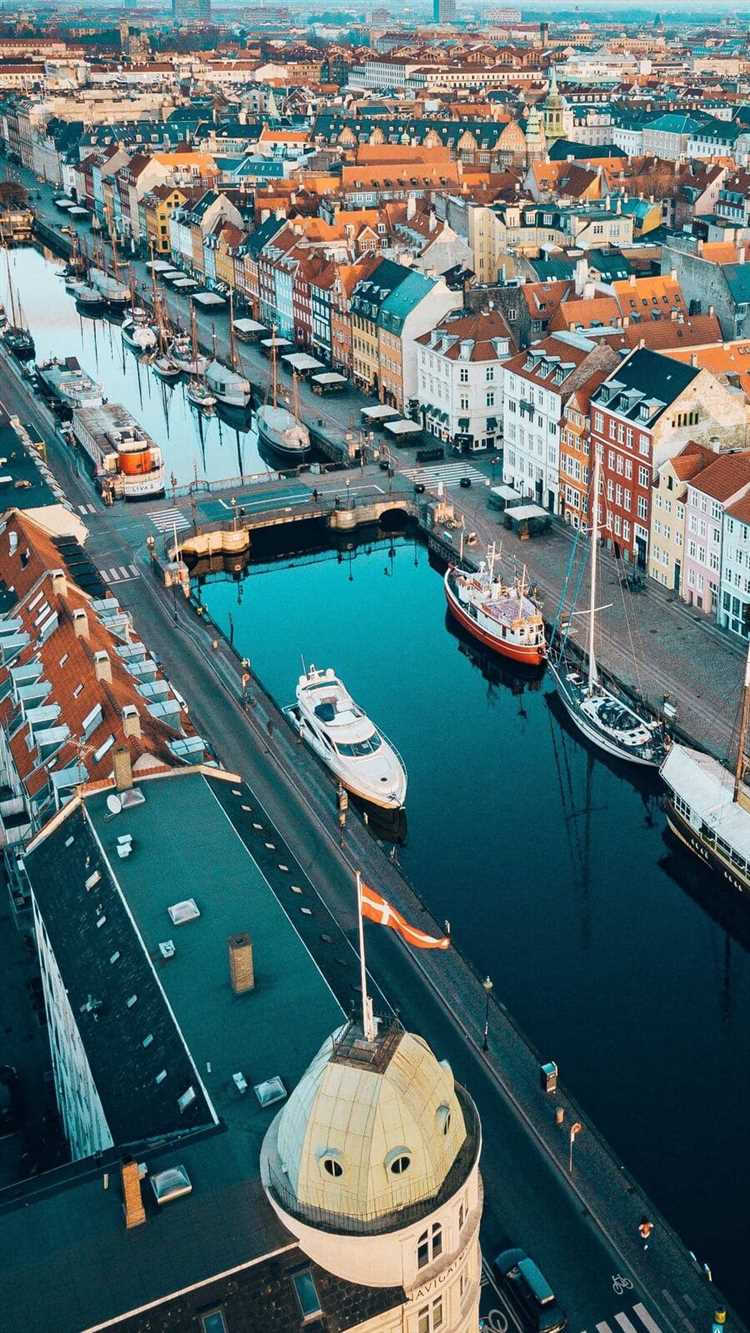
In today’s world, where climate change and pollution are major concerns, finding a country that is truly clean and environmentally friendly can seem like an impossible task. However, there is one country that stands out among the rest as a shining beacon of cleanliness and sustainability.
Welcome to the cleanest country in the world – a place where pristine landscapes and fresh air are not just aspirations, but a way of life. With its strict regulations and proactive approach to environmental conservation, this country has managed to achieve an unsurpassed level of cleanliness.
One of the main reasons why this country is considered the cleanest in the world is its commitment to renewable energy. By harnessing the power of wind, solar, and hydroelectric energy, it has significantly reduced its carbon footprint and reliance on fossil fuels. This forward-thinking approach has not only helped protect the environment, but has also boosted the country’s reputation as a leader in sustainable practices.
But it’s not just energy sources that make this country stand out. Its citizens play a crucial role in maintaining cleanliness. Public awareness campaigns and education programs have instilled a strong sense of responsibility and pride in keeping the environment clean. As a result, littering and pollution are almost non-existent, and the streets and public spaces are kept spotless.
If you’re looking for a country that takes eco-tourism to a whole new level, this is the place to visit. The cleanest country in the world offers an abundance of breathtaking natural landscapes that have been preserved in their pristine state. From crystal-clear lakes to lush forests, every corner of this country invites you to explore its untouched beauty.
In conclusion, the cleanest country in the world sets an example for the rest of the globe, demonstrating that with the right mindset and commitment, it is possible to create a clean and sustainable future. By prioritizing renewable energy, raising awareness, and preserving its natural landscapes, this country has achieved an unparalleled level of cleanliness, making it an inspiration for us all.
- Environmental Conservation Efforts
- Sustainable Energy Practices
- Waste Management Systems
- Clean Air Initiatives
- Green Transportation Solutions
- Public Transportation
- Bicycle Infrastructure
- Promoting Eco-Tourism
- Nature Conservation Projects
- Sustainable Accommodation Options
- Educational Programs
- Q&A:
- Q: Which country is considered the cleanest in the world?
- Q: What makes Switzerland the cleanest country?
- Q: Are there any other countries known for their cleanliness?
- Q: How does cleanliness affect the quality of life in a country?
- Q: What are some initiatives taken by countries to maintain cleanliness?
Environmental Conservation Efforts
In order to maintain its status as the cleanest country in the world, efforts in environmental conservation are a top priority in this country. The government has implemented various initiatives and policies to promote sustainable practices and protect the natural environment.
One of the key environmental conservation efforts is the emphasis on renewable energy sources. The country has invested heavily in wind, solar, and hydroelectric power to reduce reliance on fossil fuels and decrease carbon emissions. This commitment to clean energy has made the country a leader in renewable energy production.
Furthermore, strict regulations and standards have been put in place to control pollution. Industries are required to adhere to strict emission standards, and regular monitoring is conducted to ensure compliance. Additionally, the government promotes waste reduction and recycling, encouraging individuals and businesses to minimize waste and adopt sustainable practices.
The country also places a strong emphasis on conservation and preservation of natural habitats. National parks and nature reserves are established to protect endangered species and sensitive ecosystems. Efforts are made to promote biodiversity and ensure the long-term viability of these ecosystems.
Educational programs and campaigns play a crucial role in promoting awareness and understanding of environmental issues. The government invests in environmental education in schools and organizes public campaigns to engage citizens in environmental conservation efforts. This helps to build a sense of responsibility and encourages individuals to take action to protect the environment.
| Environmental Conservation Efforts | Description |
|---|---|
| Investment in renewable energy | Wind, solar, and hydroelectric power to reduce carbon emissions |
| Strict regulations on pollution | Emission standards and regular monitoring |
| Waste reduction and recycling | Promoting sustainable practices |
| National parks and nature reserves | Protecting endangered species and ecosystems |
| Environmental education and campaigns | Building awareness and promoting individual action |
Sustainable Energy Practices
In the pursuit of becoming the cleanest country in the world, our country has prioritized sustainable energy practices. These practices aim to generate and use energy in a way that minimizes negative impacts on the environment and preserves natural resources for future generations.
One of the key sustainable energy practices implemented is the promotion of renewable energy sources. Our country has heavily invested in solar and wind energy projects, harnessing the power of the sun and wind to generate electricity. This move towards renewable energy sources reduces our reliance on fossil fuels and decreases greenhouse gas emissions.
In addition to promoting renewable energy, our country also emphasizes energy efficiency. Energy-efficient technologies and practices have been widely adopted in both households and industries. Energy-efficient appliances, smart thermostats, and LED lighting are just a few examples of the measures taken to reduce energy consumption. Through energy audits and the implementation of energy-saving measures, we have been able to significantly lower our overall energy demand.
Furthermore, our country encourages the use of public transportation and the development of sustainable transportation infrastructure. An extensive network of electric buses, trams, and trains is available to the public, promoting a shift towards low-emission transportation options. By reducing the number of private vehicles on the road, we can minimize air pollution and decrease our carbon footprint.
In order to support these sustainable energy practices, our country also provides incentives and subsidies to individuals and businesses that adopt renewable energy technologies. This encourages widespread adoption and ensures the long-term viability of sustainable energy solutions.
By prioritizing sustainable energy practices, our country continues to lead the way in environmentally friendly initiatives. As we move towards a future powered by clean and renewable energy, we demonstrate our commitment to preserving the planet for future generations.
Waste Management Systems
The cleanest country in the world also boasts one of the most efficient waste management systems. This system is a key factor in maintaining the pristine environment of the country.
The waste management systems in this country focus on reducing, reusing, and recycling waste. To achieve this, there are strict regulations and guidelines in place for waste disposal and recycling practices. Residents are required to separate their waste into different categories, such as organic waste, paper and cardboard, plastic, and glass. This makes it easier for the waste management authorities to handle and process the waste accordingly.
One of the most notable features of the waste management systems in the cleanest country is the emphasis on proper waste segregation. The authorities provide clear guidelines and educational campaigns to educate residents about the importance of separating waste correctly. This ensures that recyclable materials are not contaminated and can be recycled efficiently.
In addition to waste segregation, this country also focuses on waste reduction and prevention. The government encourages businesses and residents to reduce their waste production by promoting sustainable practices. This includes initiatives like banning the use of single-use plastics and promoting composting for organic waste.
The waste management systems also include efficient collection and disposal methods. Collection trucks are equipped with separate compartments for different waste categories, ensuring that the waste remains segregated during transportation. The collected waste is then taken to state-of-the-art recycling facilities, where it is processed and recycled accordingly.
The success of the waste management systems in the cleanest country is evident in its low landfill rates and high recycling rates. The country has achieved remarkable results in waste management, with a significant reduction in the amount of waste sent to landfills and a high percentage of waste being recycled.
In conclusion, the cleanest country in the world has a highly efficient waste management system that focuses on reducing, reusing, and recycling waste. Through waste segregation, reduction initiatives, and efficient collection and disposal methods, the country has achieved impressive results in waste management.
Clean Air Initiatives

The clean air initiatives undertaken by the cleanest country in the world are a testimony to its commitment towards ensuring a pollution-free environment. Recognizing the detrimental effects of air pollution on public health and the environment, the country has implemented various measures to improve air quality.
One of the key initiatives is the strict regulations imposed on industries and vehicles. Industrial facilities are required to adhere to stringent emission standards and regularly monitor their emissions. Similarly, vehicles are subject to regular inspections to ensure compliance with emission standards.
In addition to regulations, the country has also invested heavily in renewable energy sources. By promoting the use of solar, wind, and hydroelectric power, the country aims to reduce its dependence on fossil fuels and decrease air pollution caused by their combustion.
Furthermore, public transportation and cycling infrastructure have been prioritized to reduce the number of vehicles on the road. The country has developed an extensive public transportation network, making it convenient and affordable for residents to commute without relying on private vehicles. The provision of dedicated cycling lanes promotes eco-friendly transportation options and further reduces air pollution.
Educational campaigns and awareness programs play a crucial role in these clean air initiatives. The country regularly conducts campaigns to educate the public about the importance of clean air and the steps they can take to contribute towards reducing air pollution. This includes promoting energy conservation, proper waste management, and the use of eco-friendly products.
Overall, the clean air initiatives undertaken by the cleanest country in the world serve as a model for other nations in their efforts to combat air pollution and create a healthier environment for future generations.
Green Transportation Solutions
As the world focuses more on reducing carbon emissions and combating climate change, implementing green transportation solutions has become increasingly important. With the advancement of technology and the growing concerns about environmental sustainability, countries around the world are adopting various measures to ensure cleaner and more efficient transportation systems.
Public Transportation

One of the most effective ways to reduce carbon emissions is by promoting and improving public transportation systems. By encouraging people to use buses, trains, subways, and trams, we can significantly decrease the number of cars on the road and minimize traffic congestion. Additionally, public transportation can be powered by clean energy sources like electricity, further reducing greenhouse gas emissions.
Bicycle Infrastructure

Investing in bicycle infrastructure is another crucial aspect of green transportation solutions. By building dedicated bicycle lanes, providing bicycle-sharing programs, and offering incentives for cycling, more people can choose this sustainable mode of transportation. Bicycles produce zero carbon emissions and offer a healthy alternative to cars, improving air quality and reducing traffic on the roads.
| Solution | Description | Benefits |
|---|---|---|
| Electric Vehicles | Promoting the use of electric vehicles by offering subsidies and installing charging stations. | Reduced carbon emissions, improved air quality, and higher energy efficiency. |
| Carpooling | Encouraging people to share rides and reduce the number of single-occupancy vehicles on the road. | Reduced traffic congestion, lower fuel consumption, and cost savings for participants. |
| Alternative Fuels | Exploring and investing in alternative fuel sources like hydrogen and biofuels. | Lower emissions, decreased dependence on fossil fuels, and improved energy security. |
By implementing these green transportation solutions, countries can reduce their carbon footprint, improve air quality, and promote sustainable development. It is crucial for policymakers, city planners, and individuals to work together to prioritize and invest in these environmentally friendly transportation options.
Promoting Eco-Tourism
Eco-tourism is becoming increasingly popular as people seek more sustainable and responsible ways to explore the world. The cleanest country in the world is at the forefront of promoting eco-tourism, showcasing its pristine natural beauty and commitment to environmental conservation.
Nature Conservation Projects

The cleanest country has invested heavily in nature conservation projects to protect its unique ecosystems. From national parks to wildlife sanctuaries, visitors can engage in eco-friendly activities such as hiking, bird watching, and wildlife observation while contributing to the preservation of these natural habitats.
Sustainable Accommodation Options
One of the ways the cleanest country promotes eco-tourism is by offering sustainable accommodation options. Visitors can stay at eco-lodges or eco-friendly hotels that prioritize energy efficiency, waste reduction, and the use of renewable resources. These accommodations provide a comfortable and environmentally responsible experience for travelers.
Educational Programs
Another way the cleanest country promotes eco-tourism is through educational programs. Visitors can participate in workshops, guided tours, and interactive experiences that teach them about environmental conservation, sustainability practices, and the importance of protecting the natural heritage of the country.
By actively promoting eco-tourism, the cleanest country in the world not only attracts visitors who are passionate about sustainable travel but also sets an example for other countries to follow. It showcases the positive impacts of responsible tourism and the importance of preserving our planet for future generations to enjoy.
Q&A:
Q: Which country is considered the cleanest in the world?
A: The cleanest country in the world is Switzerland.
Q: What makes Switzerland the cleanest country?
A: Switzerland is considered the cleanest country due to its strict environmental regulations, efficient waste management systems, and high awareness among its citizens about the importance of cleanliness.
Q: Are there any other countries known for their cleanliness?
A: Yes, other countries known for their cleanliness include Sweden, Denmark, and Norway. These countries also have well-maintained cities, strict environmental policies, and clean surroundings.
Q: How does cleanliness affect the quality of life in a country?
A: Cleanliness plays a crucial role in improving the quality of life in a country. Cleaner environments help prevent the spread of diseases, reduce pollution levels, and create a healthier and more pleasant living environment for the residents.
Q: What are some initiatives taken by countries to maintain cleanliness?
A: Countries take various initiatives to maintain cleanliness, such as implementing recycling programs, promoting the use of public transportation, creating green spaces, and encouraging citizens to participate in clean-up campaigns.